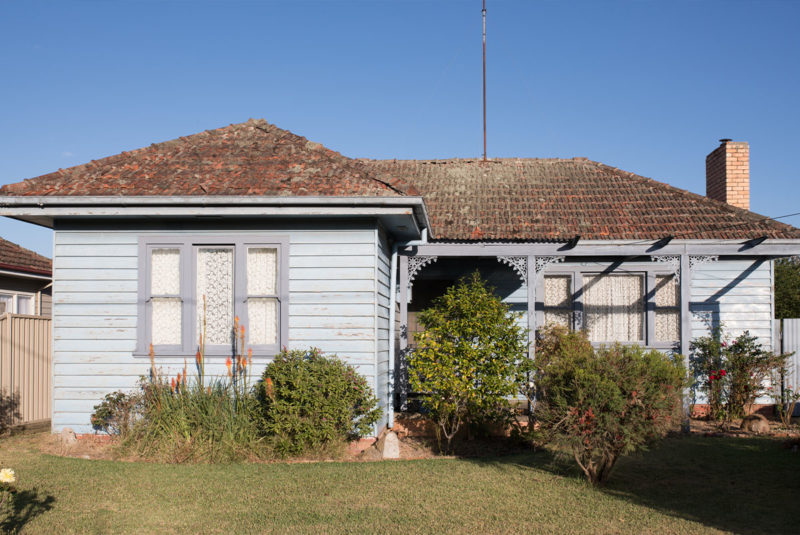Ready To Buy a Home?
Get Approved to Buy a Home
Rocket Mortgage® lets you get to house hunting sooner.
Just because you’ve got a 25-year or 30-year mortgage term doesn’t mean you have to take anywhere near that long to fully pay it off. You may be surprised to learn that you can pay off your loan much earlier. And if you’re up to the challenge, you can even pay off your mortgage loan in 5 years.
Paying off a mortgage in 5 years takes tremendous effort, but for some of you, it may prove to be worthwhile.
Paying off your mortgage early could save you thousands of dollars in mortgage interest. And you can use all that newly freed up money to do things like pay for home improvements, build an emergency fund, pay off medical bills or pay down student loan debt.
If you’re curious about paying off your mortgage in 5 years, you’ll need to do a cost-benefit analysis to help figure out whether it would be a worthwhile pursuit.
Should You Pay Off Your Mortgage in 5 Years?
There are several reasons why you should consider paying off your mortgage early. You’ll enjoy peace of mind over closing out the debt and complete ownership of your home. You’ll save thousands of dollars because you’ll pay less interest on the loan. And you can use all the money you once directed to your mortgage toward your savings and other debt.
When you pay off your mortgage faster, you save thousands of dollars in interest and fees you would’ve paid over the life of the loan. But it’s important to consider whether this decision is right for you and your finances.
If you can comfortably afford to take on the challenge of paying off your mortgage early, you’ll enjoy its many benefits. But you should postpone paying off your mortgage early if:
- Your lender has a maximum payment limit: Most lenders set limits on payments of up to 20% of the loan per year. But if you can pay up to the limit each year, you’ll have a fully paid mortgage within 5 years. Keep in mind, the lower the limit, the longer it will take you to pay off the mortgage without triggering penalties.
- Your lender issues a prepayment penalty: Before you jump in, check the terms and conditions in your mortgage agreement. Some mortgage agreements include a prepayment penalty clause. Typically, the prepayment penalty fee only applies to the first few years of a mortgage and gets phased out after 3 – 5 years. It’s essential that you understand the details of your prepayment fees (if you have them) and include them in your cost-benefit analysis.
- You won’t have any savings left: Having savings in your name – whether it’s for an emergency fund, retirement plan or a child’s education – is important. If paying off your mortgage early would drain any of these savings, it may not be worth the risk.
- You have other high-interest debts: Before you decide to pay off your mortgage early, you should eliminate other debts, such as credit cards and student loans, which tend to carry higher interest rates than mortgages. If they’re not paid off, consider focusing your attention on these debts first. Once they’re paid off, you can funnel the payments you were making on those debts toward your mortgage.
6 Ways To Pay Off Your Mortgage in 5 Years
Each approach to paying off your mortgage early comes with benefits and drawbacks. Look at all the options to determine whether any of them fit your needs and goals.
1. Set a target date
A target date creates a milestone. It helps you calculate the effort you’ll need to put in to get the results you want on the appointed date.
While it’s helpful to keep the “5-year” mark in mind, you may find it easier to reach your goal by setting a specific target date and either marking it on a calendar or setting an alarm.
Smaller monthly payments usually feel less daunting than an enormous one-time payment. So it can be helpful to set a few benchmark goals along the way as well. These checkpoints can help you track your progress toward your overall goal.
At times you may feel discouraged or tempted to spend that extra money (Black Friday, anyone?), but when you break your larger goal into smaller milestones, you’ll be encouraged to keep up the good work and sprint to the finish line.
2. Create a budget and stick to it
Before you start focusing on paying off your mortgage faster, it’s important to create a budget and cut back on your monthly spending.
Creating a budget can help you identify any areas where you’re overspending or expenses you may be able to cut. Find a way to budget that works for you and your needs. If your budget isn’t sustainable, it will be even harder to stick to it.
And keep in mind that these belt-tightening measures are temporary. Yes, you’ll need to live more frugally, but it will only be for a few years while you focus your efforts on paying off your mortgage. Once you’ve repaid your mortgage, you may be able to return to some of your regular routines and expenses.
3. Make larger, more frequent payments
Any time you find extra money in your budget, consider applying those dollars to your mortgage. If you receive a bonus, tax refund or inheritance money (for example), it can be a great time to make an extra payment.
Every time you make an additional payment, that money goes directly toward paying down the principal balance on the mortgage. And every extra payment helps reduce the percentage of your payment that goes toward interest.
Let’s say you have a 30-year, $300,000 mortgage with a 3.99% mortgage interest rate.
If you made a $25,000 down payment, your monthly mortgage payment would be around $1,311. Because interest is prioritized at the start of your loan repayment schedule, when you first start repaying your loan, about $914 will likely go toward the interest payment, and $397 will go toward the principal balance.
Just one extra payment of $1,311 would be the equivalent of 3.3 months of regular payments toward your principal balance!
Depending on how tight your budget is, a steady stream of extra mortgage payments may be difficult to manage. Your extra payments shouldn’t wreck your budget or dig you any deeper into debt.
Make biweekly payments
Another way to work in an extra payment without overextending your budget is to make biweekly payments. You’ll split your monthly mortgage payment in half, paying half one week and the other half 2 weeks later. When you switch to biweekly payments, you make 26 payments a year (think: the equivalent of 13 payments a year). You’ll sneak in an extra full monthly payment every year.
4. Boost your income
You were likely approved for your mortgage based on your current income, which may mean you don’t have much room for extra payments. If you can, try to boost your income. Consider requesting a raise at work, getting a higher paying job or taking on a side hustle (or two).
You’ll have more money to pay down the mortgage and meet your bills and other financial obligations by increasing your monthly income.
5. Refinance for a lower rate
Refinancing may be key to helping you pay off your mortgage early. Refinancing can help you get a lower interest rate and reduce your loan term. If you’re considering refinancing, make sure your lender doesn’t charge a prepayment penalty, or the penalty is minimal. With no exorbitant penalty fee to hold you back, you’ll be able to make additional payments without worry.
Refinancing to a shorter loan term will increase your monthly mortgage payments, but if you have room in your budget for higher payments, it can be worth the savings in interest. Just remember, if you refinance to a shorter term, you’re committing to higher mortgage payments. Make sure you can handle the increased amount.
6. Make a larger down payment
Traditionally, home buyers have been encouraged to buy a home with at least a 20% down payment. When you put 20% down, you don’t need to pay private mortgage insurance (PMI), which typically costs around 0.2% – 2% of the loan annually.[1]
Even if you can’t hit the 20% benchmark, the more you can put down, the better. A larger down payment reduces the amount you need to borrow from a lender. You’ll pay less in total mortgage interest, and a larger down payment may help you qualify for a better interest rate. It also makes it easier to pay off your loan faster.
Paying Off a Mortgage in 5 Years FAQs
You can pay off a 30-year mortgage in 5 years – but it will be challenging. You’ll need to create a budget and strategy that works for your financial situation. If 5 years feels impossible, consider a “longer-term” goal like paying your mortgage off in 15 years instead.
Whether your extra payments go toward the mortgage principal will depend on your lender. Make sure your lender knows where you want any extra payments applied.
After you make your final mortgage payment, you will own your home free and clear. Your lender will no longer have equity in the property, and you will no longer need to make any payments to your lender. Your lender will likely handle the necessary paperwork to file your ownership status with your county clerk’s office.
Is Paying Off Your Mortgage in 5 Years Right for You?
Choosing to pay off your mortgage early is a personal decision. Ultimately, you must decide whether you can make the necessary sacrifices now to benefit your long-term financial goals.
And, of course, there’s nothing wrong with using your full loan term to pay off your mortgage. But if you’re confident you can pay off your home loan faster, you’ll enjoy sooner-than-expected freedom from mortgage debt and pay less interest overall.
Even if paying off your mortgage early isn’t in the cards for you now, it’s always an option you can pursue when you feel like you’re in a better financial position.
Find out what you can afford.
Research what your monthly payment might look like with our intuitive mortgage calculator.
The Short Version
- Paying off your mortgage in 5 years has benefits despite the financial commitment required to reach that goal
- Paying down a mortgage early can help you get rid of private mortgage insurance (PMI) for good
- Paying off a mortgage in 5 years might not be for everyone. Refinancing a 30-year mortgage to a 15-year mortgage might be a better choice
Experian™. “How Much Does Private Mortgage Insurance (PMI) Cost?” Retrieved January 2023 from https://www.experian.com/blogs/ask-experian/how-much-does-private-mortgage-insurance-pmi-cost/




